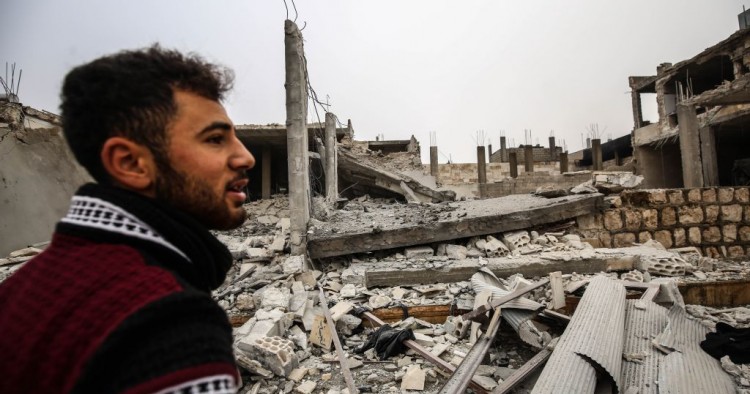2019 represented yet another significant year in the Syrian crisis, as the Assad regime sought to consolidate its gains made in 2018; the U.S.-led coalition territorially defeated ISIS and killed its leader, Abu Bakr al-Baghdadi; Turkey launched its third cross-border incursion since 2016; and U.S. policy wavered between withdrawing and remaining.
ISIS lost a great deal in Syria in 2019, including its “state” and “caliph.” Yet prior to these losses, the group had already positioned itself to endure — dissolving much of its rigid structures in order to operate as an amorphous movement of semi-autonomous cells, individually seeking to sustain a guerilla insurgency. Turkey’s assault on northeastern Syria late in 2019 and the resulting intensification of Turkish-Kurdish and Arab-Kurdish conflict fronts guarantees ISIS’s persistence and fuels its potential to resurge.
As was the case in 2018, President Donald Trump ensured that 2019 was another year of uncertainty in U.S. policy on Syria. The decision to effectively greenlight Turkey’s incursion by ordering the withdrawal of American troops dramatically weakened U.S. influence and credibility in exchange for nothing. The decision just days later to backtrack and order troops to return to eastern Syria went some way toward reassuring panicking allies, but did little to assuage a deepening concern about America’s reliability.
Bashar al-Assad, meanwhile, appeared increasingly secure — and confident — in his presidential palace, but also remained a deeply isolated global pariah. Syria’s economy and currency took a sharp nosedive in late 2019 and looked set to suffer more than ever in 2020, as the Trump administration prepared to sign the Caesar Bill into law in December 2019. The extent to which the Syrian military has been devastated by years of war was also revealed starkly in 2019, as the regime struggled to secure meaningful gains amid a five-month-long offensive in the northwest backed heavily from the air and on the ground by Russia. Iran’s absence from that fight served to demonstrate more clearly than ever how invaluable Tehran had become in Damascus’s military struggle — a conclusion likely swallowed in Moscow with some frustration.
Charles Lister is a Senior Fellow and the Director of MEI's Countering Terrorism & Extremism program.
Photo by Izzeddin Idilbi/Anadolu Agency via Getty Images
The Middle East Institute (MEI) is an independent, non-partisan, non-for-profit, educational organization. It does not engage in advocacy and its scholars’ opinions are their own. MEI welcomes financial donations, but retains sole editorial control over its work and its publications reflect only the authors’ views. For a listing of MEI donors, please click here.













